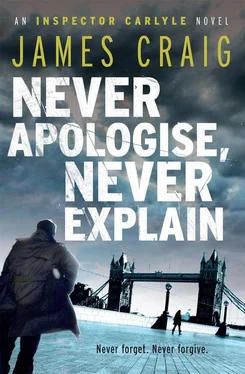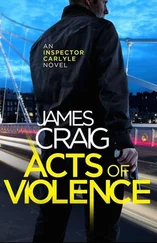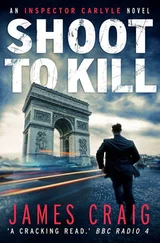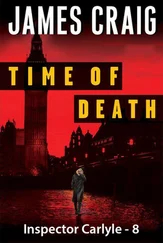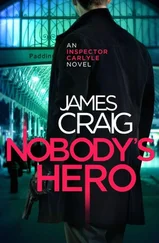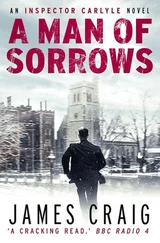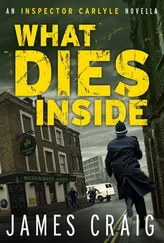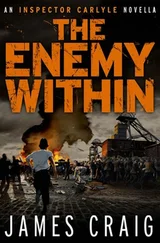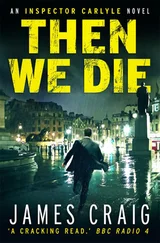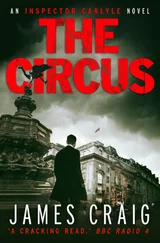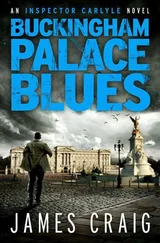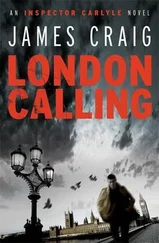James Craig - Never Apologise, Never Explain
Здесь есть возможность читать онлайн «James Craig - Never Apologise, Never Explain» весь текст электронной книги совершенно бесплатно (целиком полную версию без сокращений). В некоторых случаях можно слушать аудио, скачать через торрент в формате fb2 и присутствует краткое содержание. Жанр: Полицейский детектив, на английском языке. Описание произведения, (предисловие) а так же отзывы посетителей доступны на портале библиотеки ЛибКат.
- Название:Never Apologise, Never Explain
- Автор:
- Жанр:
- Год:неизвестен
- ISBN:нет данных
- Рейтинг книги:4 / 5. Голосов: 1
-
Избранное:Добавить в избранное
- Отзывы:
-
Ваша оценка:
- 80
- 1
- 2
- 3
- 4
- 5
Never Apologise, Never Explain: краткое содержание, описание и аннотация
Предлагаем к чтению аннотацию, описание, краткое содержание или предисловие (зависит от того, что написал сам автор книги «Never Apologise, Never Explain»). Если вы не нашли необходимую информацию о книге — напишите в комментариях, мы постараемся отыскать её.
Never Apologise, Never Explain — читать онлайн бесплатно полную книгу (весь текст) целиком
Ниже представлен текст книги, разбитый по страницам. Система сохранения места последней прочитанной страницы, позволяет с удобством читать онлайн бесплатно книгу «Never Apologise, Never Explain», без необходимости каждый раз заново искать на чём Вы остановились. Поставьте закладку, и сможете в любой момент перейти на страницу, на которой закончили чтение.
Интервал:
Закладка:
Carlyle, aware of the Ward Sister hovering nearby, ready to throw him out at the first sign of any trouble, held up a hand. ‘A couple of quick things before we go any further,’ he said, quietly but firmly, staring the boy down. ‘First — I didn’t run your girlfriend over.’
The boy looked at him suspiciously but returned to his seat.
‘On the one hand,’ Carlyle explained, ‘I don’t drive. On the other hand, I have a perfectly good alibi, which the officers investigating the case have checked out.’ He knew this was true because of the ear-bashing he’d received from his wife, complaining about the disruption his ‘colleagues’ had caused to her working day. Helen had been very disgruntled indeed at having to help the police with their enquiries. Carlyle had been left in no doubt that he would need to provide a full explanation of exactly what the hell was going on, once he got home.
‘So,’ he continued, as soothingly as he could manage, ‘you have nothing to worry about from me.’
Still the boy said nothing. Behind him, a machine bleeped. Carlyle gave the machine a professional stare. As he was the wrong kind of professional, he didn’t know if the bleeping was anything important or not. If it was, a crack team of medical professionals would presumably come roaring in and take some action. The machine bleeped for a final time and then fell silent. The woman in the bed hadn’t stopped breathing, so Carlyle assumed that things were okay. He returned his attention to the boyfriend. However, with his train of thought interrupted, he struggled to recall the second thing he wanted to say. For a moment, his mind went blank, then he pulled it back. ‘Point number two,’ he said, eyeing Joyce carefully, ‘I’m here to help, if I can. I’m certainly not here to cause you any more trouble.’
‘Like on the bus?’ the boy whined.
Carlyle felt a twinge of embarrassment. ‘What happened on the bus has been and gone. This,’ he nodded at Sandra Groves, ‘is much more serious.’
The boy shrugged. ‘I told the other policemen all that I know.’
‘Which is basically nothing.’ Carlyle had read the preliminary report. Groves had been knocked down on Moreland Street, near City University, by a stolen Peugeot which had later been abandoned up past King’s Cross station. A taxi had almost collided with the Peugeot, but the cabbie had not witnessed Groves being run down, nor had he been able to provide any kind of meaningful description of the Peugeot’s driver. There were no other witnesses. The only available CCTV showed the car accelerating towards Groves, suggesting that it wasn’t an accident but, again, it didn’t get a clear view of the driver. The Peugeot had been taken to a nearby police depot and given the once-over by a team of technicians. They recovered traces of the injured woman’s blood on the grille. Inside the car were various sets of fingerprints — none of which had shown a match on the national database.
This boy, apparently home alone at the time of the incident, had no alibi, but Carlyle couldn’t see him doing it — he seemed too much of a wimp. Anyway, domestics rarely involved stolen cars; it was so much easier just to smack the offending partner over the head with a frying pan.
‘What I’m wondering,’ Carlyle continued, ‘is why someone would want to do this to her.’
‘Why would you care?’
‘I didn’t say I cared.’ Carlyle smiled nastily, just to keep the boy on his toes. If the little do-gooder wanted to believe in the fascist bullyboy stereotype, that was fine by Carlyle. ‘It’s just that
… well, it’s just that it’s come on to my radar.’ Thinking about it on his way over to the hospital, that was the best explanation he had been able to come up with.
‘What about the other policemen?’ Joyce asked.
‘This is still their case,’ Carlyle replied. ‘But I have another case currently under investigation and I’m wondering if there might be a connection.’
‘So what do you want from me?’ Joyce asked, clearly not convinced that he should be having this conversation.
‘Tell me about what you guys were involved in.’
‘We weren’t involved in anything,’ Joyce said defensively.
‘You’re political,’ Carlyle said evenly. ‘You were campaigning for — what?’ His mind went blank. ‘That advertising business on the side of the bus.’
‘Religious beliefs.’
What about the beliefs of atheists? Carlyle thought, but he bit his tongue. ‘That’s right, I remember. It’s kind of political, I suppose.’
‘That’s not a crime.’
‘I didn’t say that it was.’ Carlyle fought to keep his irritation in check. ‘Tell me about the things that are important to you guys. Tell about the campaigns you’ve supported.’
The boy looked at the woman in the bed. Then, realising he didn’t have much else to do, he launched into a monologue he had clearly delivered many times before: ‘We draw our inspiration from the Bible and from the social teachings of the Church…’
Which church? Carlyle wondered. That’s the thing about churches; they all think they’re ‘the’ church. His irritation level rose another notch, but again he said nothing.
‘We want to help people who are poor, marginalised or oppressed,’ the boy continued, ‘and to fight injustice and poverty. There needs to be a global community that respects the rights and dignity of everyone. Discrimination must be ended.’
Good luck, sunshine, Carlyle thought. He wondered what all this had to do with filming the antics of Clive the nutty bus driver and making the traffic congestion on St Giles High Street even worse than normal.
‘The bounty of creation should be shared by all. To do that we need social justice, underpinned by the Christian faith and the values of the Gospel.’
Carlyle failed to stifle a yawn.
‘Am I boring you?’ the boy asked sharply.
Of course you bloody are, Carlyle thought. ‘No, no,’ he mumbled, yawning again. ‘Sorry, it’s just that it has been a very long day.’
The boy looked at him doubtfully.
The next yawn the inspector managed to stifle — third time lucky. ‘The Church — the campaign against unfairness — do you do any work in Latin America?’
‘Of course. We campaign wherever there is injustice and poverty.’
‘Anything specifically in Chile?’
The boy eyed him. ‘Why?’
Just answer the fucking question. ‘Humour me.’
‘Maybe,’ Joyce said. ‘I’d have to check.’
‘That organisation Sandra mentioned — the Daughters of Something or other — is that what you use to achieve all this?’
‘Daughters of Dismas is one of the organisations that gets involved in the campaign, yes,’ Joyce replied. ‘But, obviously, it’s for women only, so I can’t really get involved that much.’
‘How many members does it have?’
‘Quite a few.’
I bet, Carlyle thought. ‘What does that mean? Dozens? Hundreds? Thousands?’
‘I wouldn’t know exactly.’
Probably less than ten, Carlyle thought dismissively. He ploughed on. ‘What type of people are members?’
‘There are all sorts, from young activists like Sandra, through to old-timers — women who remember Greenham Common, things like that.’
Old-timers, thought Carlyle. Helen would love that. His wife had been to Greenham, the Women’s Peace camp in Berkshire, several times in the early 1980s, protesting against American cruise missiles being based there. Carlyle hadn’t thought about that for a long time. It was from before they had got together; before he’d even joined the police force — which was just as well or they might have met under very different circumstances. CND — the Campaign for Nuclear Disarmament — had been a big deal back then, in the days when the Russians were the number one enemy and no one had heard of Muslim fundamentalism. Now, it was all you heard. Carlyle wondered if CND was still going.
Читать дальшеИнтервал:
Закладка:
Похожие книги на «Never Apologise, Never Explain»
Представляем Вашему вниманию похожие книги на «Never Apologise, Never Explain» списком для выбора. Мы отобрали схожую по названию и смыслу литературу в надежде предоставить читателям больше вариантов отыскать новые, интересные, ещё непрочитанные произведения.
Обсуждение, отзывы о книге «Never Apologise, Never Explain» и просто собственные мнения читателей. Оставьте ваши комментарии, напишите, что Вы думаете о произведении, его смысле или главных героях. Укажите что конкретно понравилось, а что нет, и почему Вы так считаете.
